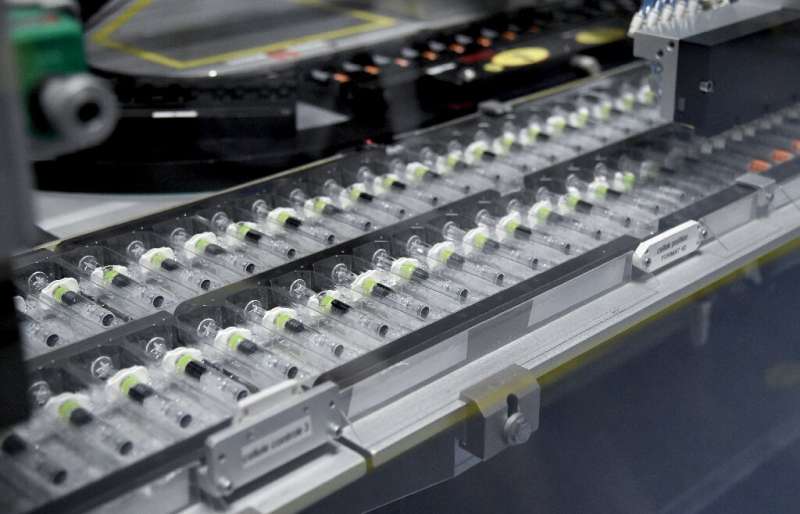Medicago, GSK report positive COVID vaccine trial


Canada’s Medicago and British pharmaceutical giant GlaxoSmithKline on Tuesday announced positive interim results for their COVID-19 vaccine candidate.
The companies voiced hope that the plant-based vaccine could be added to the global fight against the pandemic, a day after another GSK jab also showed promise in tests.
“We are delighted to see that the results suggest a very strong immune response,” Thomas Breuer, chief medical officer for GSK Vaccines, said in a joint statement with Medicago.
“We now look forward to the outcome of the ongoing (final) phase 3 trial of this refrigerator-stable vaccine candidate as the next step forward in our contribution to the global response to the pandemic.”
Vaccines that can be stored in refrigerators could be key for countries in the developing countries that do not have the capacity to stock jabs that must be kept in ultra-cold temperatures.
Nathalie Landry, executive vice president for scientific and medical affairs at Medicago, added that after two doses, the candidate vaccine “induced robust neutralizing antibody and cellular immune responses in all subjects, irrespective of age”.
She added: “These results give us confidence as we continue to move forward with our phase 3 clinical trial.
“We hope to add another tool in the global fight against COVID-19, particularly as cross-protection emerges as an important consideration in vaccination efforts worldwide.”
Experts are confident that COVID vaccines already being rolled out, such as the AstraZeneca-Oxford jab, will provide protection from a more transmissible Indian coronavirus variant.
On Monday, preliminary research showed that the Pfizer and Moderna COVID vaccines should remain highly effective against two coronavirus variants first identified in India.
Regarding the Medicago-GSK candidate, its phase 2 trial was carried out on adults in Canada and the United States. It uses GSK’s adjuvant technology, a substance that bolsters the immune response triggered by a vaccine.
The phase 3 trial on up to 30,000 people was launched on Sunday, initially in Brazil, Canada, Britain and United States.
Source: Read Full Article